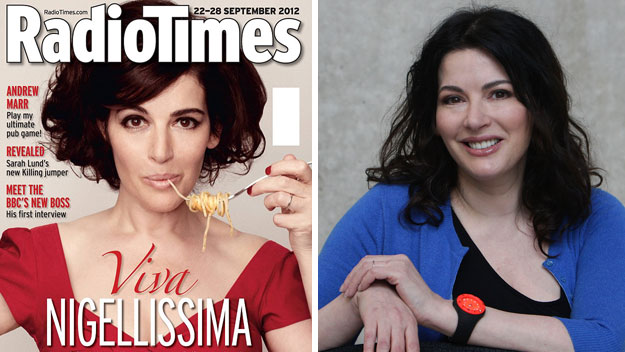Despite her recent weight loss, Nigella Lawson does not believe being thin makes you healthy.
Appearing on the cover of a UK magazine looking thinner than ever, the 52-year-old TV cook gave a frank interview about her family, food, and her weight.
Robyn Lawley: Plus-sized and proud
The mother-of-two, famous for her kilojoule-laden recipes and voluptuous figure, admitted to having only recently discovered exercise. She also said she had reduced her alcohol intake, limiting drinking to one night a week.
Despite her healthier lifestyle, Nigella said her recent weight loss was not motivated by health concerns.
“I don’t equate thinness with healthiness as other people do, because I’ve only ever seen people get thin and then die,” she told RadioTimes.
Nigella has just finished filming her latest TV series, Nigellissima, and appeared particularly thin on the cover of the magazine.
On the issue of weight loss, she said she worried about it “only if I’m having my photograph taken. Otherwise I don’t.
“I’m always going to be someone who goes up and down,” she said.
Though Nigella’s apparent lack of concern for her health may shock some, her claims that thin does not mean healthy have been backed by US diabetes researchers in a recently discovered phenomenon dubbed ‘the obesity paradox’.
The confusing findings of a New Orleans heart and vascular institute concluded that thin to normal-weight people have a higher mortality rate than those who were moderately overweight to obese when it came to chronic diseases.
For almost 10 years scientists have been re-trialling the original 2002 study, documenting the same findings in patients with heart failure, heart disease, stroke, kidney disease, high blood pressure — and now diabetes.
“People thought there was something wrong with the data. They said, ‘If obesity is bad for heart disease, how could this possibly be true?” Dr Carl Lavie, discoverer of the obesity paradox said.
Though the findings have been consistent over years of study, scientists are at a loss to explain the reasons behind it. Dr Lavie suggested that heart disease in thin people may represent a different illness than in heavier people.
Related: Adele to design plus-sized Burberry collection
It has also been suggested that genetics may be at play and treatments for certain diseases may differ between patients, with doctors prescribing more aggressive treatments to overweight people.
But dieticians warn a lower mortality rate is no motivation to let your diet go, while they may be less likely to die, overweight people are still more susceptible to heart disease and diabetes.
Video: Nigella Lawson’s weight loss




